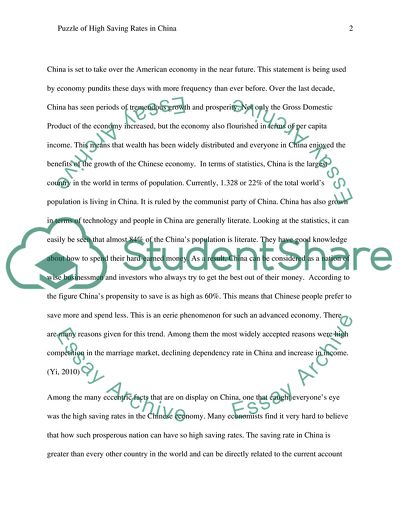Chinese saving Habit Research Paper Example | Topics and Well Written Essays - 1000 words. https://studentshare.org/macro-microeconomics/1759081-chinese-saving-habit
Chinese Saving Habit Research Paper Example | Topics and Well Written Essays - 1000 Words. https://studentshare.org/macro-microeconomics/1759081-chinese-saving-habit.


